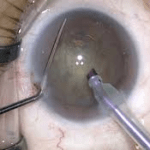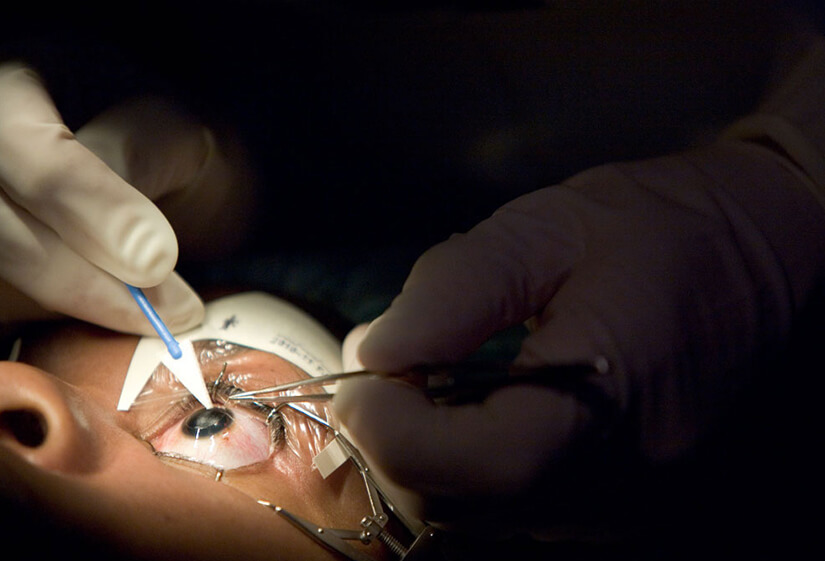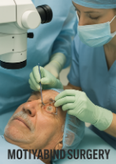Introduction
Cataract surgery is a common and safe procedure that helps restore clear vision. It’s often performed on individuals experiencing cloudy or blurry vision due to the natural aging process or other health conditions. However, it’s natural to wonder about the recovery process and how long it takes before life returns to normal. Understanding what to expect and the steps you can take to aid your healing will ensure a smoother experience. In this guide, we’ll explore the stages of recovery, factors affecting it, and tips for a faster, more comfortable healing journey.

How long does it take to recover after cataract surgery?
Most patients begin to notice improvements in their vision within 24 to 48 hours after surgery. However, complete recovery typically takes about four to six weeks, depending on individual health factors and adherence to post-operative care instructions.
The timeline for recovery can be broken down into three main phases:
Initial 24 to 48 Hours:
- Vision may be blurry or distorted.
- Mild discomfort, itching, and sensitivity to light are common.
- Protective eye shields are usually worn during this period.
- The prescribed eye drops help reduce inflammation and prevent infection.
One to Two Weeks Post-Surgery:
- Vision continues to improve gradually.
- Light sensitivity may reduce.
- Patients can usually resume light activities but must avoid heavy lifting.
Four to Six Weeks Post-Surgery:
- Vision stabilizes completely.
- Patients can return to all normal activities, including exercise and driving (if cleared by the doctor).
Phaco What Now?
Modern cataract surgery often involves a technique called phacoemulsification. This minimally invasive procedure uses ultrasonic energy to break up and remove the cloudy lens. A clear artificial intraocular lens (IOL) is then implanted to restore vision.
Phacoemulsification offers several benefits over traditional cataract surgery:
- Smaller incisions: Faster healing and reduced risk of infection.
- Shorter procedure time: Typically completed within 15 to 30 minutes.
- Minimal discomfort: Patients experience little to no pain.
Due to its advanced nature, phacoemulsification has become the preferred method for cataract removal.
Letting Wounds Heal
Although the incisions made during cataract surgery are small and heal quickly, your eyes still need time to adjust to the new lens and recover fully. During this period, you may experience:
- Blurred vision: This is temporary and should improve within a few days.
- Watering or itching: These symptoms are normal but should not persist.
- Sensitivity to light: Wearing sunglasses outdoors can help reduce discomfort.
Take Two and Call Me in the Morning
Medications play a critical role in post-surgical care. Doctors typically prescribe eye drops that serve multiple purposes:
- Antibiotics: Prevent infection.
- Anti-inflammatory drops: Reduce swelling.
- Lubricants: Keep the eyes moist and comfortable.
It’s crucial to follow the prescribed schedule and dosage to ensure optimal healing.
Just Five More Minutes
Rest is essential after cataract surgery. While the procedure itself may be quick and painless, your body still needs time to recover. Steer clear of activities that could put stress on your eyes, including:
- Prolonged reading or screen time.
- Exposure to bright lights.
- Staying in dusty or polluted environments.
Giving your eyes adequate rest can significantly accelerate the healing process.
Do’s and Don’ts After Cataract Surgery—General Aftercare Measures
Do’s:
- Follow your doctor’s instructions: Always adhere to the post-operative guidelines provided.
- Use prescribed eye drops: These help prevent complications and promote healing.
- Wear protective eyewear: Sunglasses reduce sensitivity to light and shield your eyes from dust and other environmental irritants.
- Attend follow-up appointments: Regular check-ups ensure that your recovery is on track.
- Maintain cleanliness: Keep your hands clean when touching your face or administering eye drops.
- Get adequate rest: Proper sleep is vital for recovery.
Don’ts:
- Avoid rubbing your eyes: This can cause irritation or introduce infection.
- Steer clear of strenuous activities: Heavy lifting and vigorous exercises should be postponed.
- Don’t expose your eyes to water: Swimming and direct water exposure can increase infection risk.
- Avoid driving too soon: Only resume driving when your doctor gives the green light.
- Skip dusty or polluted environments: Dust can irritate your eyes and slow recovery.

Specific Situations After Cataract Surgery and Their Effect on Recovery Time
Driving
Most patients are advised not to drive for at least 24 to 48 hours post-surgery. Your doctor will inform you when it’s safe to resume driving based on your visual clarity and recovery progress.
Water Directly in the Eye
Avoid getting water directly into your eyes for at least one to two weeks. This includes activities like swimming, showering without eye protection, or using saunas.
Makeup or Cream
Do not apply eye makeup or facial creams near the eyes for at least a week. Makeup particles can irritate the eye or introduce bacteria, leading to infections.
Lifting Heavy Objects
Heavy lifting increases intraocular pressure, which can interfere with healing. It’s best to avoid lifting anything heavy for at least two weeks after surgery.
Tips for Faster Cataract Surgery Recovery
Drop It Like It’s Hot
Always use your prescribed eye drops as directed. These are essential for preventing inflammation and infections.
Hit Me with That Script
Follow your medication schedule meticulously. Pain relief medications and antibiotics play a significant role in ensuring a smooth recovery.
Protect Your Eyes
Wear protective glasses or shields, especially while sleeping, to avoid accidental injury.
Maintain Hygiene
Ensure that your hands are clean before touching your face or administering eye drops.
Avoid Dusty Environments
Exposure to dust and pollution can irritate the eyes and hinder recovery.
Eat a Healthy Diet
Foods rich in vitamins A, C, and E, along with antioxidants, support eye health and promote healing.
Stay Hydrated
Proper hydration helps maintain overall health and supports the body’s natural healing processes.
Be Patient
Recovery timelines may vary between individuals. Staying calm and following your doctor’s instructions will ensure the best possible outcome.
Conclusion
Recovering from cataract surgery doesn’t have to be daunting. By following your doctor’s advice, practicing good eye care, and giving your body the rest it needs, you can achieve a smooth and speedy recovery. Remember, each person’s healing process is unique—patience and proper care are key to regaining clear and vibrant vision. With the right approach, you’ll be back to enjoying a brighter, clearer world in no time.
Author Details:
Dr. Sushruth Appajigowda holds a prominent position as a Cornea, Cataract, Glaucoma, and LASIK Surgeon in Bangalore. He serves as the chief Cataract and Refractive surgeon at Vijaya Nethralaya Eye Hospital, Nagarbhavi Bangalore. Renowned as one of the finest LASIK surgeons nationwide, he brings with him over 12+ years of experience across multiple LASIK platforms, including ZEISS, ALCON, SCHWIND, AMO, and Bausch and Lomb. Having successfully conducted over 5000 LASIK procedures, Dr. Sushruth holds the title of a Certified Refractive Surgeon and a Fellow of the All India Collegium Of Ophthalmology. Furthermore, he stands as a distinguished speaker at various National and International Forums, using his expertise to guide you in selecting the most suitable procedure based on your health requirements.

http://vijayanethralaya.com/link-in-bio/
FAQ
How much bed rest is required after cataract surgery?
Complete bed rest is not usually required after cataract surgery. However, you should avoid strenuous activities and get plenty of rest during the first 24 to 48 hours to help your eyes heal properly.
How many days should I rest after cataract surgery?
Most patients can resume light daily activities within a day or two. However, you should avoid heavy lifting, bending over, and strenuous exercises for about one to two weeks.
Can I go out 3 days after cataract surgery?
Yes, you can usually go out after three days, provided you avoid dusty environments and wear protective sunglasses to shield your eyes from bright light.
How long can it take for the eye to clear after cataract surgery?
Vision may be blurry initially but typically clears up within a few days to a week. Full stabilization of vision can take up to four to six weeks.
What is the fastest way to recover from cataract surgery?
- Follow your doctor’s post-operative instructions.
- Use prescribed eye drops as directed.
- Wear protective eyewear.
- Rest your eyes and avoid strenuous activities.
- Maintain good hygiene and avoid touching your eyes unnecessarily.
What is the biggest complaint after cataract surgery?
The most common complaint is dry eyes and sensitivity to light. These symptoms are usually temporary and can be managed with prescribed eye drops and protective sunglasses.












